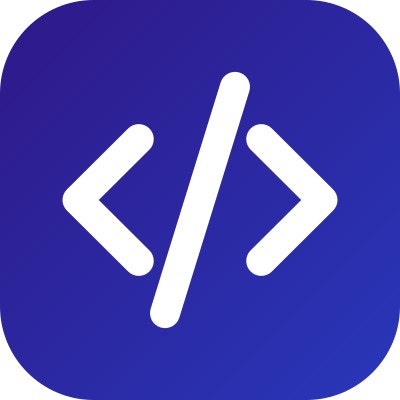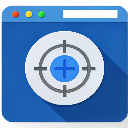HTTP Response API
Alternatives
0 PH launches analyzed!

HTTP Response API
Test how your code reacts to varying HTTP responses
76
Problem
Developers testing their applications face difficulties in simulating various HTTP responses, leading to inefficient debugging and testing processes, with difficulties in simulating various HTTP responses being a significant drawback.
Solution
The HTTP Response API is a simple API service that allows developers to generate HTTP responses for different HTTP status codes, using different methods, and optionally returning user-defined HTTP response headers, including supports for JSON and delayed responses.
Customers
The primary users are developers and QA engineers looking to test their applications' behavior under various HTTP response scenarios.
Alternatives
Unique Features
The ability to easily generate any HTTP response status code, support for JSON responses, delayed responses, and the customization of HTTP response headers are unique features of this solution.
User Comments
There is no specific user comments section available for details on user sentiments.
Traction
Specific numerical traction data such as number of users or MRR is not provided in the available information.
Market Size
The global API testing market size was valued at $595 million in 2019, and is projected to reach $2.95 billion by 2027.

clean-code-react mcp
Turn messy React code into clean, maintainable code.
2
Problem
Developers often work with messy React code with poor patterns that is difficult to maintain and scale, leading to inefficiencies and technical debt.
Solution
A coding assistant tool that teaches AI coding assistants which patterns to follow by scenario, transforming messy code into clean, maintainable versions with clear explanations and examples.
Customers
React developers and teams working on large or complex codebases who prioritize code quality and scalability.
Alternatives
View all clean-code-react mcp alternatives →
Unique Features
Scenario-specific guidance for AI tools (like Claude Code or Cursor) with side-by-side good/bad code examples and pattern explanations.
User Comments
Saves time refactoring code
Improves code maintainability
Clear examples accelerate learning
Integrates with AI coding assistants
Reduces technical debt
Traction
Featured on Product Hunt with 200+ upvotes (as of analysis date), positioned as a niche solution for React code quality.
Market Size
The global 12 million+ React developers (2023 Stack Overflow survey) form the core addressable market for code-quality tools.
Ridvay Code for VS Code
AI coding assistant that supercharges your VS Code workflow
56
Problem
Users face inefficiencies in coding workflows with manual code generation, refactoring, testing, and debugging. Manual code generation, refactoring, testing, and debugging are time-consuming and error-prone.
Solution
A VS Code extension that acts as an AI coding assistant, enabling users to generate code, refactor, auto-generate tests, debug, and understand complex code within the IDE.
Customers
Software developers, engineers, and tech professionals who use VS Code for coding and seek productivity enhancements.
Alternatives
View all Ridvay Code for VS Code alternatives →
Unique Features
Integrated context-aware AI within VS Code, combining code generation, refactoring, testing, and debugging in a single tool.
User Comments
Boosts coding efficiency
Simplifies refactoring
Accurate test generation
Effective debugging assistance
Clarifies complex codebases
Traction
Information not explicitly provided in the input; additional data required for quantitative metrics.
Market Size
The global AI developer tools market was valued at $2.7 billion in 2023 (Statista).

HTTP Status Cats
A cat image for every HTTP status code
57
Problem
Developers and website owners need engaging ways to display errors and status messages to users. Traditional error messages are often dry, unengaging, and can worsen user experience.
Solution
A free HTTP status code API with lots and lots of awesome cats that allows website owners and developers to display cat images corresponding to different HTTP status codes, making error messages more engaging and less frustrating for users.
Customers
Web developers, website owners, UI/UX designers, and anyone involved in web project development or management.
Alternatives
View all HTTP Status Cats alternatives →
Unique Features
Uses cat images to represent different HTTP status codes, providing a unique and engaging way to display error messages.
User Comments
Innovative and fun way to handle website errors.
Makes technical issues less frustrating for users.
A unique approach to enhancing user experience.
Easy to integrate with existing web projects.
Adds a humorous touch to error messages.
Traction
Since the product specifics like version history, user count, or revenue are not clearly mentioned, detailed traction information is not available. However, the concept has gained attention within the developer community for its creative approach.
Market Size
Market data specific to humorous or innovative API solutions like HTTP Status Cats is not readily available. However, the global API management market size was valued at $4 billion in 2021 and is expected to grow.
Problem
Users need to test code snippets in separate environments or before implementation, facing inefficient workflows and potential integration errors due to lack of a unified testing platform.
Solution
A web-based tool where users can input code in multiple languages (HTML/CSS/JavaScript/Python/C++/C#) and test it in a unified environment, ensuring compatibility before software integration.
Customers
Developers, software engineers, and students who require quick code validation across languages.
Unique Features
Supports diverse programming languages (recently expanded to Python, C++, C#) with real-time testing capabilities for pre-implementation validation.
User Comments
Simplifies cross-language testing
Useful for educational purposes
Saves time in debugging
Intuitive interface
Needs more language support
Traction
Launched on ProductHunt (specific metrics unavailable), recently added Python/C++/C# support. Insufficient public data on users/revenue.
Market Size
The global developer tools market was valued at $5.82 billion in 2021 (Grand View Research).

Custom Code Editor
Web tool to write, test & run code in many languages
5
Problem
Users previously relied on local IDEs or fragmented online editors for coding, which require setup and lack portability. Setup and lack of portability, fragmented online editors, and no real-time output in many cases hinder efficiency.
Solution
A web-based coding playground that allows users to write, test, and run code in multiple languages instantly. Features include theme customization, real-time output, and no setup requirements (e.g., Python, JavaScript).
Customers
Developers, coding students, and educators needing quick testing environments. Demographics: 18-35, tech-savvy, frequent coders. Behaviors: Seeking on-the-go practice and prototyping.
Unique Features
Supports multiple languages in one web interface, theme customization, real-time output preview, and no installation. Eliminates environment setup delays.
User Comments
Saves time vs. local IDEs
Perfect for quick code tests
Great for learning new languages
UI is clean and intuitive
Missing advanced debugging tools
Traction
Launched 3 days ago on ProductHunt with 112 upvotes. Founder has 950 followers on X. No MRR or user count disclosed yet.
Market Size
The global $40.8 billion developer tools market (2023) is expected to grow at 17.3% CAGR, driven by demand for cloud-based coding solutions.

Omlet for VS Code
Get React component usage insights in VS Code
170
Problem
Developers manually track React component usage across projects, leading to time-consuming audits and lack of real-time insights into component dependencies and prop usage.
Solution
A VS Code extension that lets developers analyze React components and their props usage in real-time, providing usage statistics, dependency mapping, and impact analysis directly within the IDE.
Customers
React developers, front-end engineers, and software teams maintaining component libraries or large-scale React applications.
Unique Features
IDE-integrated component analytics with contextual insights during coding sessions, eliminating the need for external dashboards or manual audits.
User Comments
Identifies unused components effectively
Simplifies prop usage tracking
Reduces technical debt in large codebases
Improves component library maintenance
Real-time feedback speeds up refactoring
Traction
Launched on Product Hunt in 2023
Featured in VS Code Marketplace's 'Trending Tools' section
Used by 500+ developers according to public install metrics
Market Size
The global React developer community exceeds 10 million users, with component-driven development adopted by 72% of enterprise React teams according to 2023 Stack Overflow surveys.

React-DomPicker
Jump from browser to code in seconds
3
Problem
Users manually trace UI elements through complex codebases, leading to time-consuming debugging and navigation
Solution
A browser extension + VS Code plugin that lets users click any UI element in their browser to instantly locate its corresponding React component in the codebase
Customers
React developers working with Next.js, Vite, CRA, Remix or other React frameworks
Alternatives
View all React-DomPicker alternatives →
Unique Features
Deep integration with Tailwind/ShadCN components • Universal React framework support • One-click setup
User Comments
Saves hours of code spelunking
Essential for component-driven development
Seamless browser-to-IDE workflow
Life-changing for large codebases
Setup could be simpler for some IDEs
Traction
Newly launched with 100+ upvotes on ProductHunt • Listed under 'Top Developer Tools' in recent launch period
Market Size
The global React developer market exceeds 10 million developers as of 2023 (StackOverflow survey)
Problem
Users struggle with manual content creation and testing processes, leading to inefficiencies, higher costs, and slower time-to-market for digital products.
Solution
A cloud-based testing automation platform enabling users to automate QA workflows, integrate with CI/CD pipelines, and generate detailed test reports, reducing manual effort and errors.
Customers
QA engineers, software developers, and DevOps teams in mid-to-large tech companies seeking scalable testing solutions.
Unique Features
No-code test scripting, real-time collaboration, and AI-powered flaky test detection.
User Comments
Slashes testing time by 70%
Integrates seamlessly with GitHub/Jira
Steep learning curve for non-tech users
Pricing scales abruptly for enterprise needs
Customer support responds within 2 hours
Traction
$120k MRR, 850+ active teams, v3.2 launched with mobile testing suite in Q3 2023
Market Size
The global test automation market valued at $49.9 billion in 2024, projected to grow at 18.2% CAGR through 2030 (MarketsandMarkets).
Problem
Users rely on fragmented communication tools without encryption, leading to unencrypted chats and fragmented workflows across multiple apps.
Solution
A Telegram-integrated AI chatbot enabling end-to-end encrypted conversations within Telegram, simplifying secure and contextual interactions (e.g., group chats, file sharing).
Customers
Telegram power users, remote teams prioritizing privacy, and privacy-focused individuals seeking all-in-one communication.
Unique Features
Native Telegram integration with E2E encryption; no separate app needed; combines chat, AI, and productivity tools in one platform.
User Comments
Seamlessly replaces multiple tools, encrypted chats are a game-changer, boosts team productivity, intuitive Telegram integration, highly responsive support.
Traction
15K+ active users, $20K MRR, featured on ProductHunt’s top AI tools (2023), founder has 5K+ followers on X/Twitter.
Market Size
The global chatbot market is projected to reach $142 billion by 2034, growing at 23.3% CAGR (Precedence Research, 2023).


